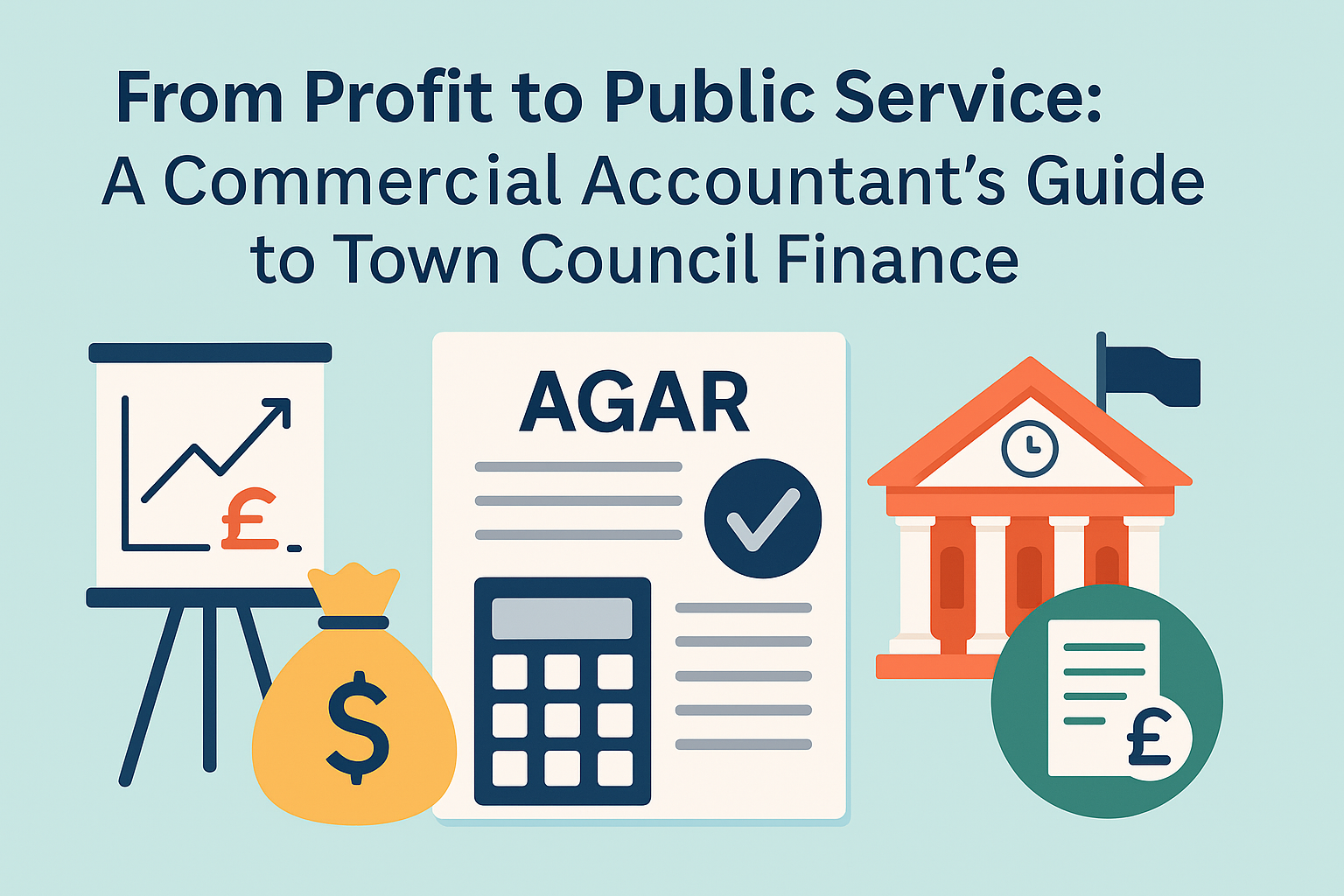As a qualified accountant with experience in the commercial sector and experienced using Xero, Quickbooks and Sage, stepping into the world of town or parish council finance can feel like entering a parallel universe. The core principles of good financial management remain—but the objectives, language, and regulatory framework are distinctly different.
If you're considering making the leap into local government accounting, here’s what you need to know.
🧭 Commercial vs Council Accounting: What’s the Difference?
1. Different Purpose, Different Priorities
In business, the focus is on profitability, cost control, and shareholder value. In local government, the focus shifts to transparency, accountability, and the delivery of services for the public good. Every pound must be justified not only financially but ethically.
2. Regulations You’ve Never Heard Of
Forget IFRS and UK GAAP—town councils are governed by a different set of rules:
- The Local Audit and Accountability Act 2014
- Accounts and Audit Regulations 2015
- The JPAG Practitioners’ Guide
Smaller councils also follow the Transparency Code for Smaller Authorities. These regulations focus less on complex financial instruments and more on proper use of public funds, community engagement, and clear reporting.
3. Receipts & Payments vs Income & Expenditure
Councils with a turnover below £200,000 usually operate on a receipts and payments basis (cash accounting). Those above that threshold use income and expenditure (accrual-based). Understanding which applies is essential for correct reporting.
4. Audit and Governance are Centre Stage
Expect rigorous internal control processes, a high level of scrutiny from internal auditors (who often focus more on process than numbers), and a strong emphasis on governance.
📘 Key Terms You Need to Know
AGAR (Annual Governance and Accountability Return)
Think of it as the year-end package. The AGAR includes:
- A governance statement
- Accounting statements
- The internal audit report
- Public rights and transparency sections
Precept
Instead of generating income, councils raise funds via the precept, a portion of local council tax. It’s the financial lifeblood of a council and requires careful forecasting and justification.
Reserves
- General Reserves: A cushion against unforeseen events, ideally covering 3–12 months of expenditure.
- Earmarked Reserves: Set aside for specific projects (e.g. new bus shelters, playground refurbishments).
Transparency Code
Requires councils to publish:
- Spending over £100
- Grant payments
- Asset lists
- Contracts and tenders
- Councillor allowances and responsibilities
Asset Register
A critical record of everything the council owns—benches, noticeboards, land, buildings. It’s used for both reporting and insurance purposes.
Section 137 Expenditure
This allows councils to spend a limited amount on community-benefit projects not otherwise authorised by law. It’s capped per resident.
VAT and Partial Exemption
Councils can usually reclaim VAT but must be cautious about exempt supplies and partial exemption thresholds.
✅ How to Prepare for the Shift
If you're applying for a town council role, here’s how to get ahead:
- Read the JPAG Practitioners’ Guide – It’s the definitive manual for local council finance.
- Study a real AGAR to understand the reporting structure
- Brush up on the Transparency Code and public reporting expectations.
- Familiarise yourself with council-specific software like Scribe, Rialtas, or Edge.
Final Thoughts
Local council finance may be less about corporate strategy and more about community impact, but it’s no less professional or rewarding. As a commercial accountant, your skills in budgeting, reporting, and internal control are highly transferable—just be ready for a culture where public trust is the bottom line.






